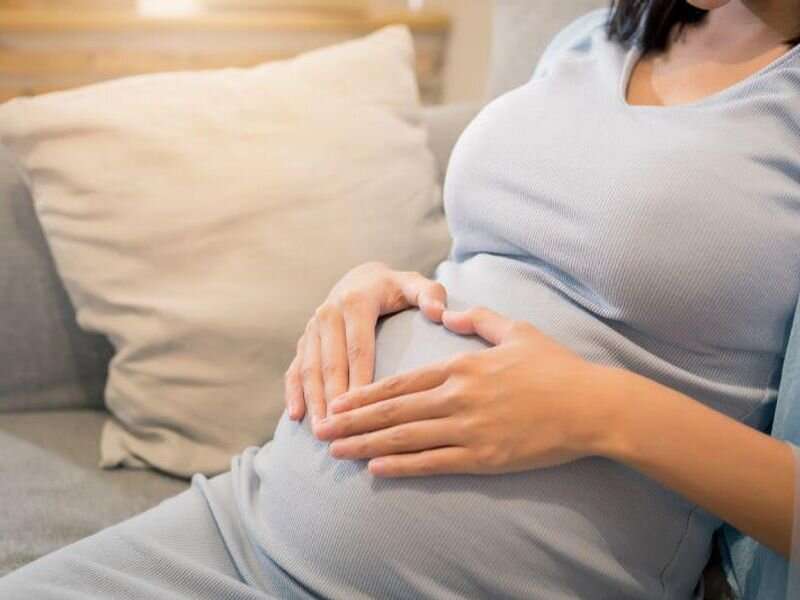This article has been reviewed according to Science X's editorial process and policies. Editors have highlighted the following attributes while ensuring the content's credibility:
fact-checked
peer-reviewed publication
reputable news agency
proofread
In rare cases, COVID-19 in pregnancy could harm the fetal brain

It's highly unlikely, but COVID-19 can be transmitted from mother to baby through the placenta, causing injury to the developing fetus' brain, a new study finds.
Researchers shared two unusual cases among hundreds of pregnant and delivering mothers they saw who were infected with COVID.
In both cases, the infants tested negative for COVID at birth, but had significantly elevated virus antibodies in their blood. This suggested that the antibodies had crossed the placenta or that the virus had passed to the baby and the immune response was the infant's.
Both infants had seizures, small head sizes and developmental delays. One died at 13 months.
"Many women are affected by COVID-19 during pregnancy, but to see these kinds of problems in their infants at birth was clearly unusual," said study co-author Dr. Shahnaz Duara, a professor of pediatrics at the University of Miami Miller School of Medicine.
"We're trying to understand what made these two pregnancies different, so we can direct research towards protecting vulnerable babies," Duara said in a school news release.
The authors noted that early in the pandemic they observed transient lung disease and sometimes blood pressure issues among newborns born to mothers with COVID but who themselves had tested negative at birth.
This hinted at infection, the authors said. It was unclear, however, whether the problems were caused by inflammatory placental cytokines or whether the virus had crossed the placenta and injured the baby.
"If we saw a baby who presented this way, we would call it hypoxic ischemic encephalopathy [brain damage caused by decreased blood flow]," said co-author Dr. Michael Paidas, professor and chair of the obstetrics, gynecology and reproductive sciences at the school of medicine. "But it wasn't lack of blood flow to the placenta that caused this. As best we can tell, it was the viral infection."
Paidas and Arumugam Jayakumar, a neuroscientist and molecular biologist in the school of medicine, found the presence of virus in both patients' placentas and also in the brain of the infant who died.
Analysis of both placentas clearly demonstrated severe inflammatory changes in each placenta, the authors said. The researchers were also struck by the absence of a critical placental hormone, human chorionic gonadotrophin. This hormone is essential for all fetal development, especially for brain development.
The authors noted that in both cases, the mothers contracted the infection in their second trimesters. Although they later cleared it, one had a repeat infection in her third trimester. This suggested an unusual maternal and/or fetal immune response to the virus.
The authors hope that their cases will alert obstetricians and pediatricians about the potential dangers of maternal COVID-19 to newborns. The group is interested in potentially identifying biomarkers to select babies who are most at risk.
Concerned mothers-to-be should get a COVID-19 vaccine before or during pregnancy as a first line of defense, the authors said.
Study findings were published April 6 in the journal Pediatrics.
More information: The U.S. Centers for Disease Control and Prevention has more on COVID-19 in pregnancy.
Merline Benny et al, Maternal SARS-CoV-2, Placental Changes and Brain Injury in 2 Neonates, Pediatrics (2023). DOI: 10.1542/peds.2022-058271
Copyright © 2023 HealthDay. All rights reserved.




















